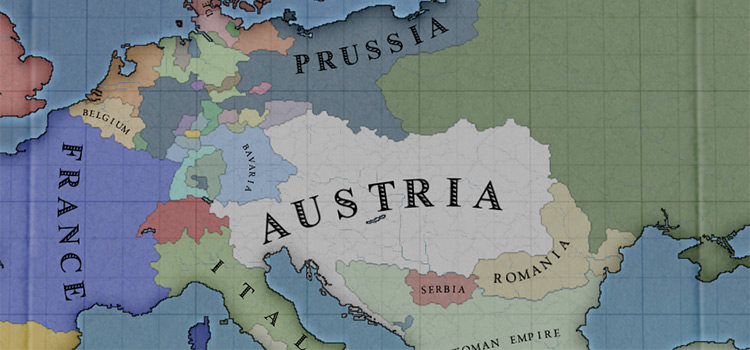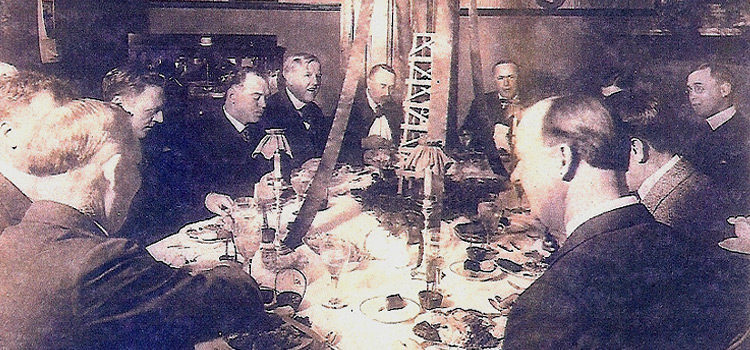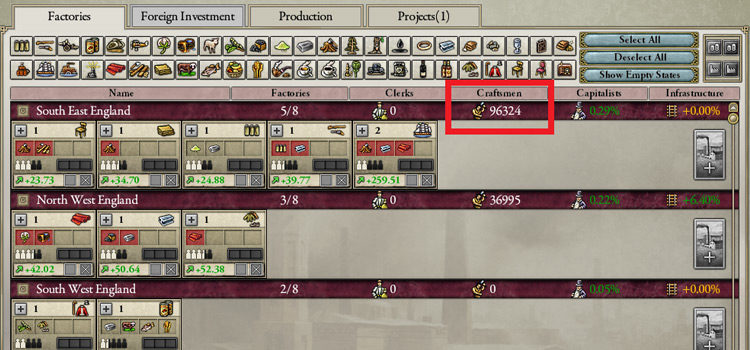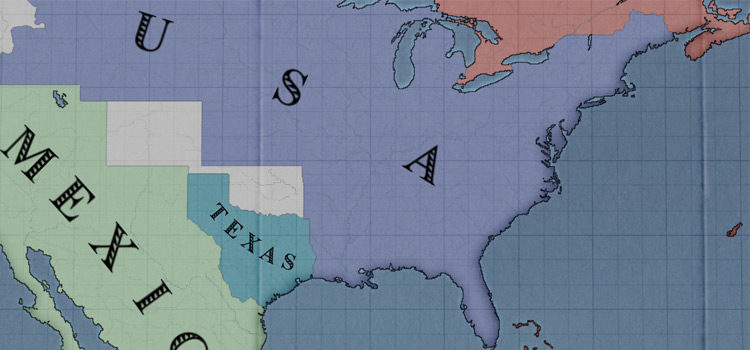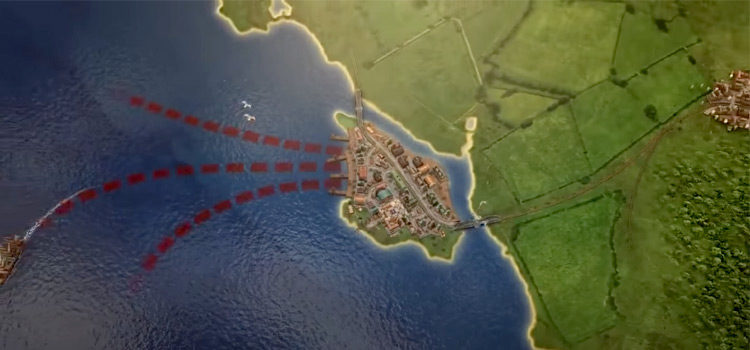How To Get Casus Belli in Victoria 2
This post may contain affiliate links. If you buy something we may get a small commission at no extra cost to you. (Learn more).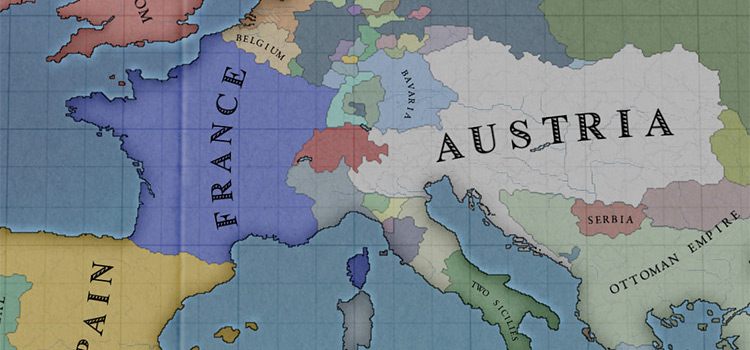
In Victoria 2, a country always needs a reason to declare war on another country. So you cannot declare war without a casus belli, and knowing how to get them & which ones are the most useful is key to building an empire.
Most casus belli are obtained through the “justify war” diplomatic action, although some of them are automatic (you do not need to fabricate them), and a few are unlocked or altered by technologies such as “Nationalism and Imperialism” or “Revolution and Counterrevolution”.
Fabricating a casus belli usually incurs some Infamy if you are discovered. This represents the threat perceived by other nations because of your expansion, and should always be kept under twenty-five.
Adding wargoals during a war always accrues maximum Infamy for the respective casus belli.
Different Types of Casus Belli
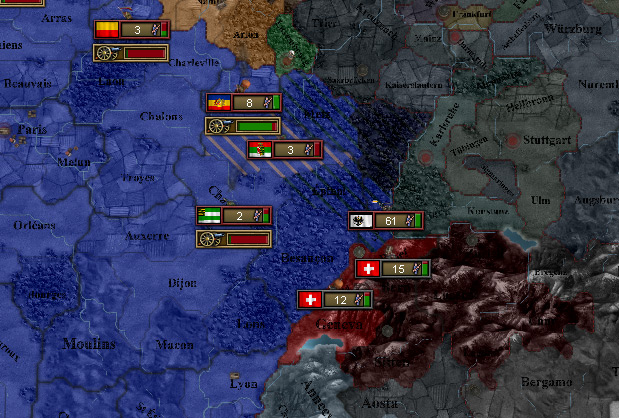
There are many different casus belli in Victoria 2:
- Expansion-related casus belli will generate the most Infamy, but the victor will be able to keep territory, POPs, and resources. Westernized nations can use “Demand Concession” and “Establish Protectorate” against non-westernized nations, while the latter are limited to the standard “Acquire State” and “Conquest”
- Reclaiming Cores usually does not require a casus belli to be justified and generates no Infamy. These wargoals are ideal additions to a long war. Liberating non-existent nations must be justified, but it is comparatively inexpensive.
- Some casus belli are used to weaken another nation. “Humiliate”, “Cut down to size”, “Dismantle Fortifications”, and “Containment” force the target to downsize its army and infrastructure or reduce its prestige.
- Expanding your sphere of influence is also an option, one far safer than outright annexing smaller nations. Still, it will require fighting another Great Power if your target is already sphered. These casus belli are extremely useful when trying to form a cultural union such as Germany.
How To Justify War
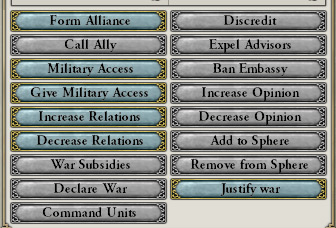
Note: If “Declare War” is active, you do not need to fabricate a casus belli and you can skip this section.
To fabricate a Casus Belli against another country, open the Diplomacy menu and select “Justify War”.
The game will tell you how long it will take and the maximum Infamy score you will gain from that casus belli should your attempt be discovered.
There is a 1.5% daily chance of being detected fabricating a casus belli, and the sooner it happens, the more Infamy you will gain. This is random, so be careful and hope for the best: you could also go undetected and gain no Infamy at all.
Once you have your casus belli, you will have a limited amount of time to declare war.
You can check this in the war tab of the diplomacy menu: move the cursor over your flag to know when the casus belli will expire.
Adding Wargoals
If you are already at war with a country, you may be able to add wargoals beyond the first, possibly winning a large chunk of territory or forcing the enemy to disarm during the truce.
In order to do so, your POPs must support jingoism.
This is not hard to achieve: if you’re at war and war exhaustion isn’t too high (in other words, if you are winning), you should be able to add one or two wargoals.
Be careful though – because this will add to your Infamy score as if you were discovered fabricating your new wargoals on day one.
Making Peace
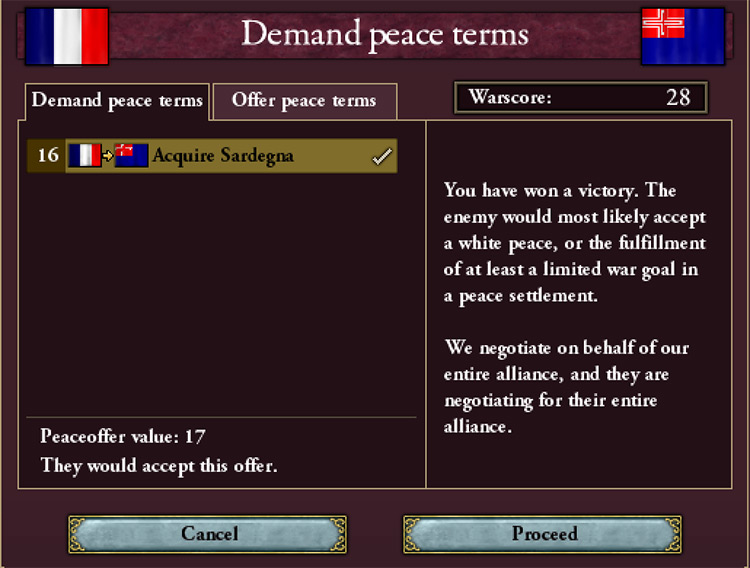
After the war is over, you can either make demands on your foe, or offer peace terms to settle on before your situation worsens.
Each war has a war score ranging from +100 to -100, meaning that your side is winning or losing.
The AI will rarely accept peace offers that exceed your war score, and you will usually have to give up a couple of points for the sake of peace.
However, if your Infamy is low, you should consider making separate peace deals with all your enemies.
Each war also has two nations leading each side, but you can force your enemy’s weaker allies to make concessions of their own.
Regardless of who won, a five-year truce will be enforced for the victor to enjoy the spoils and the vanquished to rebuild – if it still exists, that is.
How To Manage Infamy

Between wars, you will want to keep your eyes on your Infamy score.
I cannot stress nor repeat this often enough: never let your Infamy reach twenty-five.
Your Infamy represents how wary other nations are of your expansion, and it is not limited to the nations you actually invaded.
When it reaches the twenty-five-point threshold, it allows any country to declare war on you with the “Containment” casus belli, which is basically “Cut Down to Size” plus “Humiliate”.
In other words, it’s really bad for you.
There are only three tools at your disposal to lower Infamy:
- It decays over time, especially if you are at peace.
- You can release satellites to reduce your Infamy by five points per nation released.
- Some countries have special decisions that can help you in a pinch.
Once your Infamy is depleted, you can freely start warmongering again with impunity.
